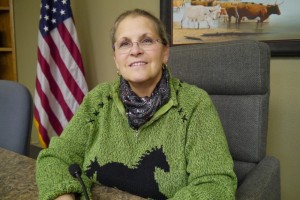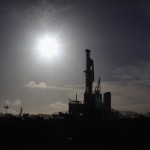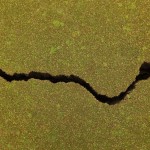Man-Made Quakes Get a Hearing at Texas Legislature

Doualy Xaykaothao / KERA News
Lynda Stokes is the mayor of Reno in Parker County, where dozens of medium-sized earthquakes have been recorded in an area that used to be quake-free.
For perhaps the first time in its history, the state legislature held a hearing Monday about earthquakes. But we’re not talking about natural tremors, we’re talking about man-made earthquakes. Texas has seen quakes measuring 3.0 and higher increase tenfold since an oil and gas drilling boom began several years ago, with the first quake swarm striking in the fall of 2008. Now, residents from these quake-stricken areas want answers.
Gale Wood of Eagle Mountain Lake in North Texas drove down to Austin to be here for the meeting. He says for him and his wife, the problems started last November, when the first quake struck.
“It was pretty scary at the time, because we had never had this experience,” Wood recalls. “And so we didn’t know what was gonna happen next, if the house was gonna fall in on us or kill us or what?”
There were dozens of quakes in the region in the following weeks, with the most recent one felt by residents in January. Since then, things appear to have quieted down, but researchers at Southern Methodist University (SMU), after installing additional monitors in the winter, have been tracking hundreds of smaller quakes and thousands of minor tremors since January.
Several scientific studies have already demonstrated a strong link between these quakes and oil and gas drilling activity. In most cases, the culprit has been disposal wells, used to dispose of oil and gas wastewater deep underground.
Geologists and other scientists told the committee Monday that what they need most right now is more information, like precise numbers for oil and gas wastewater disposal, and more monitors to better measure earthquakes when they do happen.
But Lynda Stokes, the mayor of Reno, which has felt the brunt of much of the latest swarm, wants more. She asked lawmakers to suspend operations at the disposal wells outside of her town that could be causing quakes there. She’s not optimistic that’ll happen, and she was dismayed to hear lawmakers downplay the size of the quakes and the damage they’ve done.
“There actually has been damage. Especially to an area that’s not built to earthquake specifications,” Stokes says. “Now, if you were talking about being on the west coast, you’d be talking about a completely different story. They’re built to withstand that. We’re not.”
The agency that oversees oil and gas drilling in Texas, the Railroad Commission, recently hired a seismologist, Craig Pearson, to study the issue more. He told lawmakers that they don’t know enough yet to point the finger at disposal wells, though the quakes in Reno and Azle appear to be occurring at a similar depth and location.
Judging by Monday’s hearing, it will likely take months, if not years, for the Railroad Commission and lawmakers to coordinate a response to the issue.

